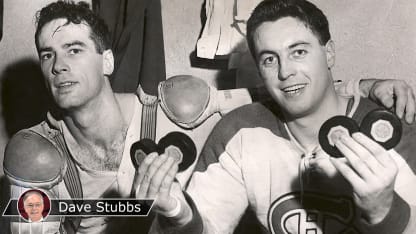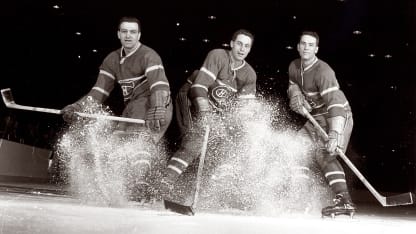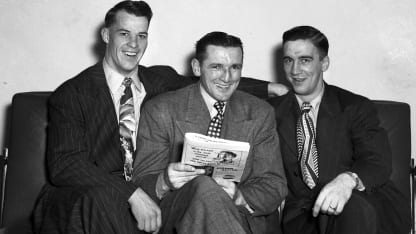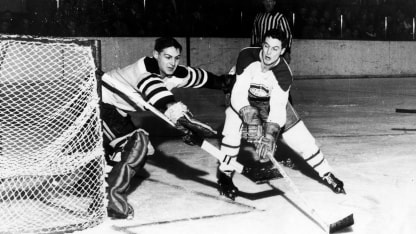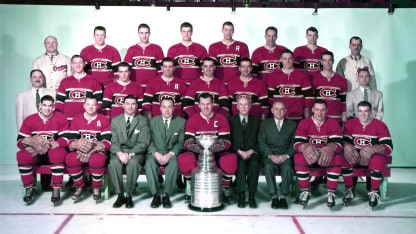Canadiens linemates Bernie Geoffrion (left), Jean Beliveau (center) and Bert Olmstead in a 1957 photo.
It probably hadn't sat well with Boston the morning after the game, when a newspaper showed Beliveau posing in the dressing room with Olmstead for Canadiens photographer David Bier, happily holding up four pucks.
Selke, whose power play featured future Hall of Famers Beliveau, Richard and Olmstead up front with defenseman Doug Harvey and forward Bernie Geoffrion on the points, didn't try to hide his anger when the proposed rule change passed.
"You might outvote me on that one, but you'll never convince me of its justice," he said, quoted in D'Arcy Jenish's 2008 book, "The Montreal Canadiens: 100 Years of Glory."
Selke pointed to the awesome power play of the Detroit Red Wings, whose late 1940s Production Line of Sid Abel, Gordie Howe and Ted Lindsay, all future Hall of Famers, terrorized the League.
